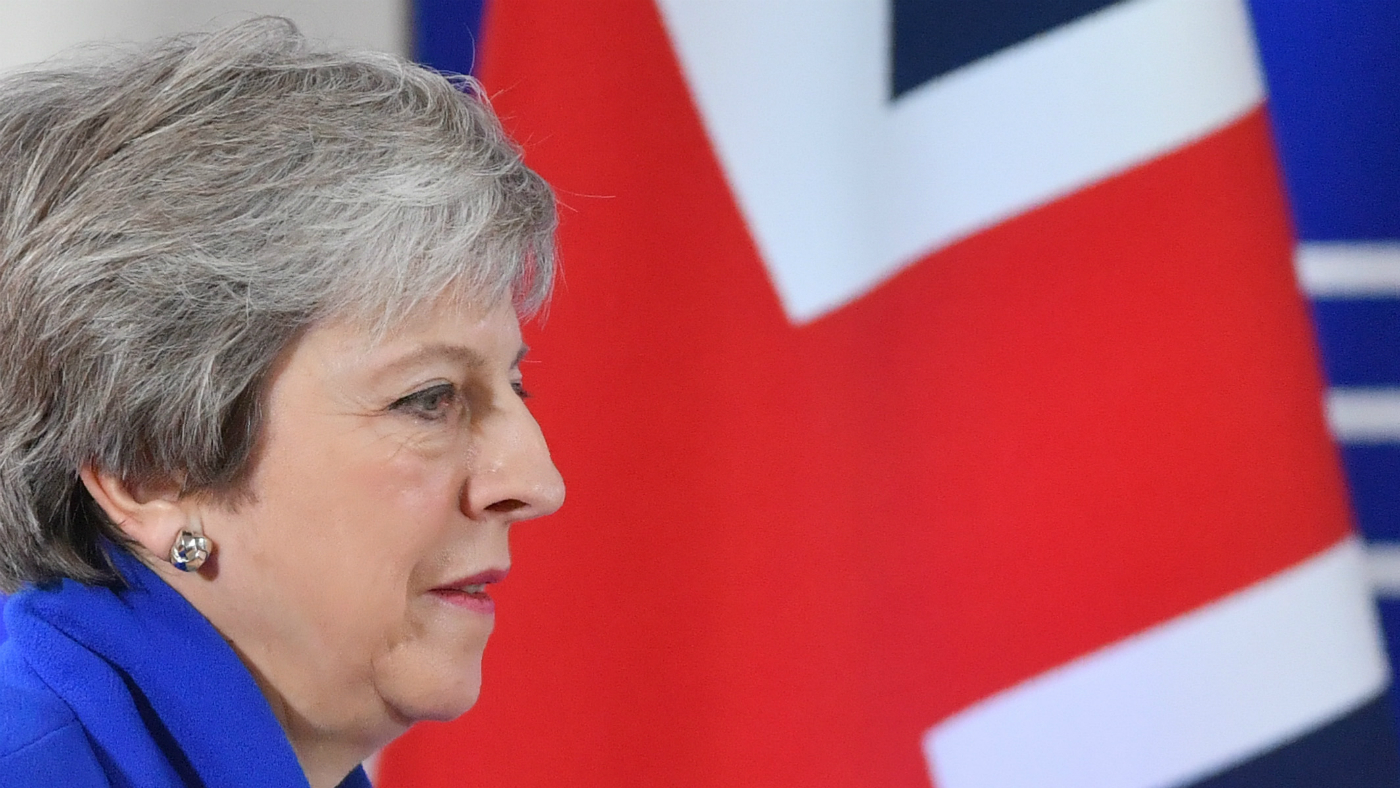EU leaders endorse Brexit deal at historic summit
Theresa May now faces uphill battle to get her deal approved by parliament next month

A free daily email with the biggest news stories of the day – and the best features from TheWeek.com
You are now subscribed
Your newsletter sign-up was successful
After nearly two years of tense negotiations, EU leaders finally signed off a Brexit deal at yesterday’s summit in Brussels.
The withdrawal agreement and outline of Britain’s future relations with the bloc, which still requires parliamentary approval, was accepted without any objections on Sunday morning.
European Commission President Jean-Claude Juncker described it as a “sad day,” adding that no-one should be “raising champagne glasses” to the impending divorce.
The Week
Escape your echo chamber. Get the facts behind the news, plus analysis from multiple perspectives.

Sign up for The Week's Free Newsletters
From our morning news briefing to a weekly Good News Newsletter, get the best of The Week delivered directly to your inbox.
From our morning news briefing to a weekly Good News Newsletter, get the best of The Week delivered directly to your inbox.
In a warning to British MPs planning to vote against agreement, he said this was the only deal on the table.
“Those who think that, by rejecting the deal, they would get a better deal, will be disappointed,” he told reporters.
Speaking after the meeting, Prime Minister Theresa May urged the British public to get behind the agreement.
Despite “the increasingly bleak prospects” for her deal passing the House of Commons next month, May struck a defiant note, The Guardian reports.
A free daily email with the biggest news stories of the day – and the best features from TheWeek.com
Although she admitted that the agreement included compromises on both sides, the prime minister said it “delivered for the British people” and set the UK “on course for a prosperous future”.
However, there is near-unanimous consensus in Westminster that the prime minister’s withdrawal agreement will be defeated when it comes before MPs on 12 December.
Foreign Secretary Jeremy Hunt said the parliamentary arithmetic was “looking challenging” and warned “nothing could be ruled out” if May lost the vote, including the government collapsing, the BBC says.
Labour leader Jeremy Corbyn vowed that his party would oppose the deal, which he said left Britain in “the worst of all worlds” and gives the country “less say” over its future.
For May, “it's now the beginning of a very planned, very scripted operation as she attempts to sell the deal to MPs and the general public,” says the BBC’s Laura Kuenssberg.
“Whilst at the moment it appears the deal would not get through parliament, everything could change as time goes on and the debate continues,” she adds.
-
 The ‘ravenous’ demand for Cornish minerals
The ‘ravenous’ demand for Cornish mineralsUnder the Radar Growing need for critical minerals to power tech has intensified ‘appetite’ for lithium, which could be a ‘huge boon’ for local economy
-
 Why are election experts taking Trump’s midterm threats seriously?
Why are election experts taking Trump’s midterm threats seriously?IN THE SPOTLIGHT As the president muses about polling place deployments and a centralized electoral system aimed at one-party control, lawmakers are taking this administration at its word
-
 ‘Restaurateurs have become millionaires’
‘Restaurateurs have become millionaires’Instant Opinion Opinion, comment and editorials of the day
-
 Should the EU and UK join Trump’s board of peace?
Should the EU and UK join Trump’s board of peace?Today's Big Question After rushing to praise the initiative European leaders are now alarmed
-
 How corrupt is the UK?
How corrupt is the UK?The Explainer Decline in standards ‘risks becoming a defining feature of our political culture’ as Britain falls to lowest ever score on global index
-
 The high street: Britain’s next political battleground?
The high street: Britain’s next political battleground?In the Spotlight Mass closure of shops and influx of organised crime are fuelling voter anger, and offer an opening for Reform UK
-
 EU-Mercosur mega trade deal: 25 years in the making
EU-Mercosur mega trade deal: 25 years in the makingThe Explainer Despite opposition from France and Ireland among others, the ‘significant’ agreement with the South American bloc is set to finally go ahead
-
 Biggest political break-ups and make-ups of 2025
Biggest political break-ups and make-ups of 2025The Explainer From Trump and Musk to the UK and the EU, Christmas wouldn’t be Christmas without a round-up of the year’s relationship drama
-
 Who is paying for Europe’s €90bn Ukraine loan?
Who is paying for Europe’s €90bn Ukraine loan?Today’s Big Question Kyiv secures crucial funding but the EU ‘blinked’ at the chance to strike a bold blow against Russia
-
 ‘The menu’s other highlights smack of the surreal’
‘The menu’s other highlights smack of the surreal’Instant Opinion Opinion, comment and editorials of the day
-
 Moscow cheers Trump’s new ‘America First’ strategy
Moscow cheers Trump’s new ‘America First’ strategyspeed read The president’s national security strategy seeks ‘strategic stability’ with Russia